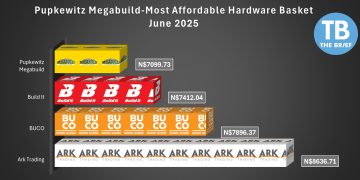
Professional services company PwC has published its Non-executive directors: Practices and fees trends report for 2022, highlighting how much top management earns at some of the largest companies in South Africa.
PwC noted that the top 200 JSE-listed companies are used for this analysis as opposed to the full list of JSE-listed companies used in prior years.
The role of a chairperson requires a large time commitment. The chairperson’s involvement level has also increased due to additional work to be carried out between scheduled meetings, organisational representation externally (or external organisational representation duties), and interacting with fellow board members and employees, said PwC.
Some boards include the position of deputy chairperson. This person assists the chairperson and fills in at meetings if the chairperson is unavailable, added the firm.
The lead independent director is required to preside over all board meetings at which the chairperson is not present, or where the chairperson is conflicted, including any session of the independent directors.
PwC noted that, over the last few years, we have observed that lead independent directors have begun to play a larger role on boards, taking on greater prominence and responsibility in driving board independence.
This has resulted in lead independent director fees increasing more rapidly than other positions on boards.
Lastly, non-executive directors are required to make up the majority of a board’s membership. The majority of non-executive directors should also be independent, said PwC.
According to the report, the average remuneration for these positions across the top 200 companies ranged from R472,000 to R3.47 million per annum.
Fees paid to chairpersons averaged R2.7 million, while the median was around R1.4 million. On the lower end, some earned just under a million at R875,000, while the upper end of the spectrum earned just over R3.5 million.
Deputy chairpersons took home an average of R2.08 million, with the lower end taking home R680,000. However, top deputy chairs saw as much as R3.47 million, which is more than most chairpersons.
Non-executive directors raked in the least, averaging R1.18 million, while lead independent directors averaged slightly more at just over R1.4 million.
Super caps
Super caps represent the top ten companies on the JSE. As of 31 October 2022, these companies accounted for 69.7% of the JSE’s total market capitalisation.
The companies that make up the JSE top ten are shown in the table below, while the figures that follow illustrate remuneration averages calculated for them, PwC said.
An examination of fees paid across the JSE’s super caps shows that the average salary for chairpersons was as much as R14.46 million.
The average pay for non-executive directors was R3.47 million, with the top earners making R4.87 million.
The report further detailed the salary spread among large, medium, and small-cap companies and their chairpersons in various industries – including Consumer Discretionary, Consumer Staples, Health Care, Telecommunications, Industrials and Technology industries.
Chairpersons in the large-cap Consumer Discretionary sector far out-earned any other industry, making on average R20.39 million. In contrast, those on the board of large-cap Health Care companies earned the least, making R3.45 million on average.
Chairpersons in the medium-cap Technology sector were paid the most compared to others, such as Industrials and Basic Materials – earning R3.69 million compared to R2 million and R2.5 million, respectively.
Additionally, chairpersons within the small-cap industries – including AltX that are included in the JSE Top 200 – found fortune in the Real Estate sector, making on average R1.43 million. Chairpersons involved in AltX and Consumer Staples earned the least, raking in R642,000 and R966,000 on average.-bustech













